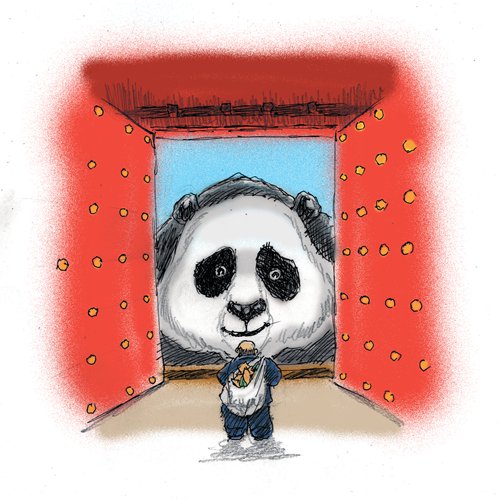
Illustration: Peter C. Espina/GT
By Western accounts, China is a country that is easily provoked. Foreign companies doing business in China have to tread cautiously to avoid many cultural mine fields. Crossing political red lines will incur more serious consequences. Last year alone, from Brooklyn Beckham to Marriott International, not to mention D&G all learned their lessons.
Repeated backlash caused by these culturally and politically insensitive actions seems to cast doubts on the seriousness foreign celebrities and companies attach to the Chinese people's feelings. Some Western people attribute this sensitivity to the effects of a century of humiliation. It is a period roughly starting from the Opium War in the 40s of the 19th century to the establishment of the People's Republic of China in 1949. China suffered semi-colonization, multiple foreign aggressions and severe poverty during this century.
Chinese civilization was at its lowest point during that time. To some extent, it also shaped China's relations with the world, particularly with the West. After the Ming Dynasty (1368-1644) sent the world's largest fleet then on exploration voyages, as far as to the coast of Africa, China adopted a closed-door policy and shut itself out from the rest of the world. It missed the time capitalism and industrialization were budding in Europe and America. The giant agricultural country was later forced to open the door and involve itself in the global trade by gun and cannon.
China learnt its lessons from this period of time. Lagging leaves you vulnerable to bullying. But China also learnt through its development later that opening-up is the only way of drawing in development momentum. The most valuable experience of China's four decades of reform and opening-up is that it unleashed its potential by integrating into the global system.
Integrating means more cross-cultural engagement, which is delicate and can be tricky. Controversies strike from time to time. Some are not funny to Chinese but at the same time not annoying. For example, the gesture of slanting eyes. Some were outraged, like saying the country is a shit. Dumb? Definitely. Intentionally insulting? Maybe. It is expected that such unfortunate episodes will gradually reduce with more cultural exchanges that make foreigners and foreign companies understand more of local cultural norms, and the Chinese become more resilient toward cultural offense. But still a mistake, even a careless one, can come at the cost of business.
However, political provocations are different in nature and can't be tolerated. The rising national strength of China has inevitably brought about more conflicts with some countries. Countries that deem China a rival or hold prejudice against its political system are tempted to make provocative moves on issues that China regards as core interests, such as territorial integrity and sovereignty. Chinese authorities are bound to express their firm opposition or take necessary countermeasures, because doing nothing will invite bolder provocations.
Chinese authorities' reaction is often stereotypically viewed as China's bluffing. Still haunted by century of national humiliation, the Western elites think, China cannot deal with the Western world finely. Worse, it may eventually seek its revenge for past suffering, according to their logic. This mind-set typecasts China as a potential threat to peace and stability.
It needs to be pointed out that China didn't launch a single war during the period of its development in recent decades. It seeks a conciliatory approach of talks to solve disputes. As wars are raging in many parts of the world, and flashpoints lurk dangerously, China advocates discarding geopolitical obsessions and seeking joint development. It also needs to be pointed out that many of today's deep-rooted disputes between countries are legacies of Western colonialism.
Chinese people have walked out of the pathos of century of humiliation, though the West seemingly wants its century of bullying to continue. Ironically, those Western powers that used to force countries to open their market are now embracing populism and protectionism against globalization and regard foreign culture a form of sinister invasive force.
Is it Chinese that can't cast off the shadow of past suffering, or is it the West that can't face other civilizations equally?
The author is Deputy Editor of the Global Times. lujingxian@globaltimes.com.cn
